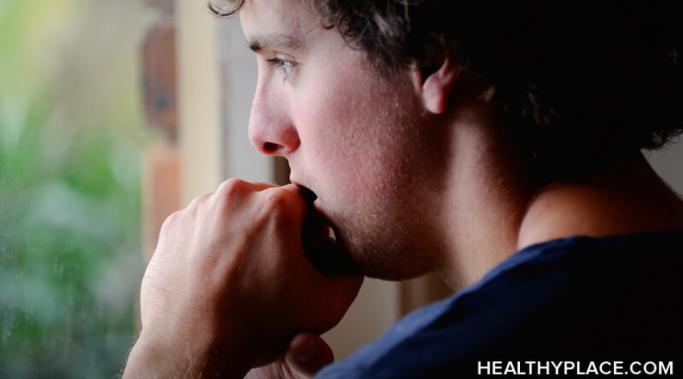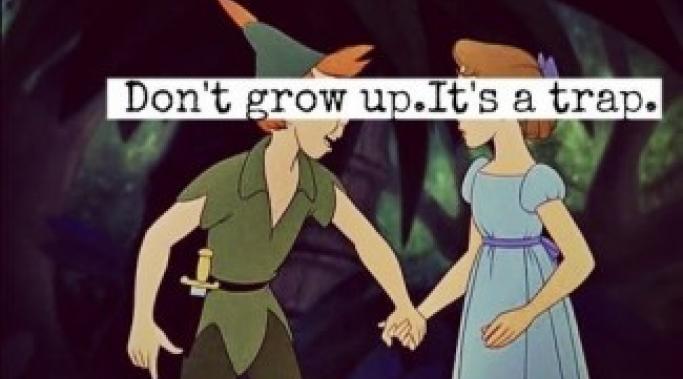Blogs
In my experience, I have found that the diagnosis of a mental disorder can be almost as difficult to deal with as the illness itself. In fact, it can be enough to throw your whole life off kilter and send you spiraling down into the blackest abyss – scrabbling at mass segments of misplaced sanity and reason. Or at least, that’s how it was for me.
Being diagnosed with anorexia as a teen -- 13 -- evoked a conflicting quantity of emotions. I was hit with a sense of surrealism, fear, confusion and even a barely formed hint of masochistic pride. Because the verdict literally happened overnight, one moment I was a young, active and apparently healthy teenage girl – and the next I was anything but. I was anorexic -- malnourished, insensible and broken. I was a pariah.
Hello, my name is Sherry Polley. I am currently 31 and living in Indianapolis, Indiana. I will be blogging for the Dissociative Living blog. I was formally diagnosed with dissociative identity disorder (DID) around 2008. I have since recovered from the disorder due to therapy and a miraculous medication. I had been living with the disorder for my entire life, and found it to be very confusing until I received and understood the diagnosis of DID. It wreaked havoc on my life and was very painful. I did a lot of unpleasant things when my alters would take over and my loved ones were very concerned about my behaviors. I am here to tell you that recovery is possible, from dissociative identity disorder as well as others.
One of the horrific aspects of suicide is how helpless other people are to stop someone who truly wants to die. I have said before and I will say again that even one suicide is too many and we all have to work together to end the rash of suicides that affect so many of our youth (among others). But one hard truth that we have to accept is that we are really helpless when it comes to one person’s individual suicide.
A healthy body image is vital for a healthy self-esteem. It means being comfortable with your own body and it's your own perception. A poor body image can be damaging in so many ways. It's often associated with eating disorders, depression, anxiety, low self-esteem and a range of other issues. The reality is that many people don’t like, or are ashamed of, their bodies.
I have schizoaffective disorder and I hear voices. The first time I heard them 16 years ago, I thought they were faeries. Sometimes I still think that. Faeries are troublemakers. So are my voices.
Like it or not, other people often have input in our mental health treatment. For example, my mother once contacted a psychiatrist and told her my symptoms. Without talking to me, the psychiatrist told my mother what changes she would make. I confronted her and she later told my mother I had an attitude problem (ironically enough, this psychiatrist told my mother my borderline personality disorder (BPD) was caused by poor parenting). Long story short, I fired her. But you can't really blame my mother. She wanted what was best, even if it meant the psychiatrist broke confidentiality in a non-emergency situation. It raises an interesting question: should other people have input in your mental health treatment?
If you have read about domestic violence, then know that healing from abuse can be as difficult as living in it. You've read that leaving abusive relationships is not easy and can be downright dangerous. You read about the cycle of abuse and the power and control wheel. You've also come to understand that whether you believe you are abused or if you continue to question if your partner abuses you, your relationship is not a healthy one. Hopefully, at the very least, you realize the problem in your relationship cannot be entirely your fault (relationships take two, you know) and your mental disorders or problems like codependency explain only a fraction of the story.
It isn’t easy growing up – that is a hard, long-known fact. Adolescence is when change is constantly occurring and it is also when many of those who struggle with self-harm become addicted. This isn’t the case for all because there are many individuals who begin self-injurious behaviors before they hit their teens and some who begin self-harm during adult years.
There is stigma in our society around combat veterans with PTSD (combat posttraumatic stress disorder [PTSD]). Stigma consists of negative stereotypes of people simply because of a diagnosis and these unfair perceptions affect not only a veteran’s relationship with others but also the veteran’s relationship to his or herself.
Do you want higher self-esteem? Stop doing these 6 things that can lower your self-esteem and impact your confidence.









